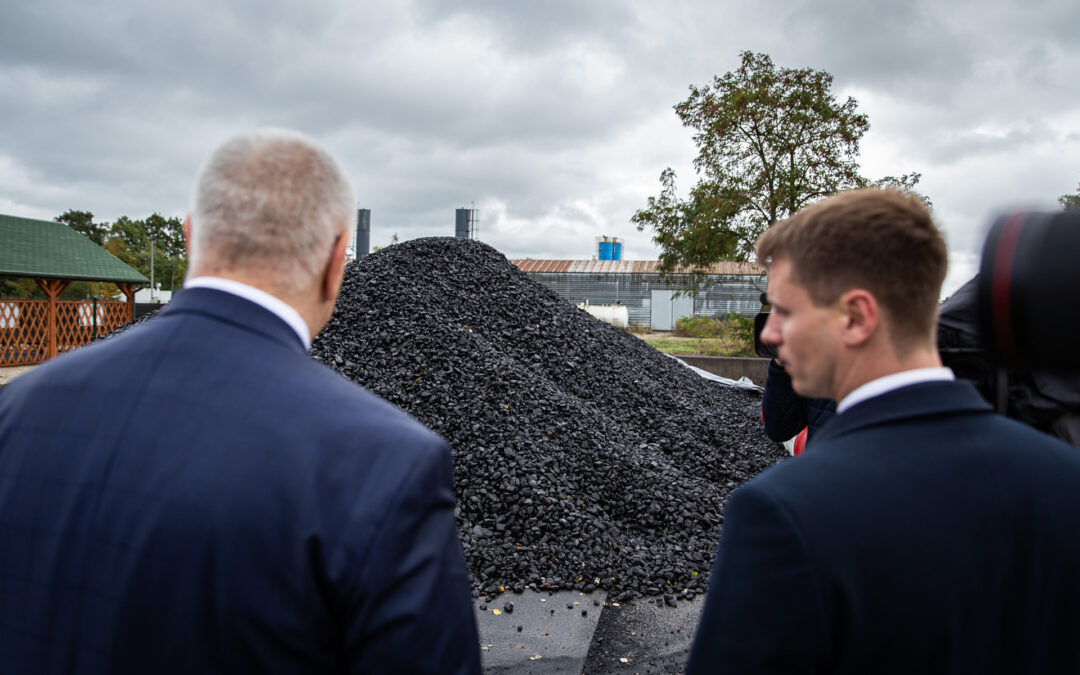Poland is set to introduce caps on the price of coal and electricity after the lower house of parliament, the Sejm, approved both measures, which are intended to help households, businesses and other institutions cope with soaring energy prices this winter.
Last week, the government proposed a maximum electricity price for local authorities, small and medium-sized businesses, as well as a range of “public use entities” (including schools, hospitals and churches) of 785 zloty (€164) per megawatt hour (MWh) for up to 90% of average energy use.
That measure was yesterday supported by an overwhelming majority of 411 MPs in the 460-seat Sejm. The only parliamentary grouping not to vote in favour was the far-right Confederation (Konfederacja).
The same legislation will also provide households – which already have the cost of their first 2,000 kilowatt-hours (kWh) of electricity capped at this year’s prices – with a maximum price of 693 zloty per MWh for any usage above that limit.
Meanwhile, a separate bill was passed that will enable local authorities to buy coal for 1,500 zloty per tonne from state energy firms PGE Paliwa and Węglokoks and then sell it to households – around a third of which use coal for heating in Poland – for a maximum of 2,000 zloty per tonne.
Current coal prices average 3,000 to 4,000 zloty per tonne, notes industry website MuratorPlus, around four times higher than last year’s prices of 800 to 1,000 zloty per tonne.
Households will have the right to buy 1.5 tonnes of coal at the guaranteed prices this year and the same amount next year. The government estimates 3.6 million to 3.8 million households can benefit, with the scheme costing the state around 4 billion zloty (€836 million), reports financial news website Bankier.pl
The coal bill was supported by the ruling national-conservative Law and Justice (PiS) caucus, as well as The Left (Lewica), the agrarian Polish People’s Party (PSL), and centrist Poland 2050 (Polska 2050). It was opposed by Confederation while the centrist Civic Coalition (KO), the largest opposition group, abstained.
Michał Krawczyk, a KO MP, said that the coal bill was seeking to shift responsibility for the government’s failings onto local authorities. He and his party suggested that the measures would not help because there is a lack of coal supplies, and much of the coal that is available is of poor quality.
Niekompetencja rządu PiS sprowadza na Polskę najmroźniejszą zimę w historii!
Węgla brakuje na składach, a jeżeli jakiś jest, to się nie pali.
W takiej sytuacji znalazł się przedsiębiorca z Chrzypska Wielkiego.Dokąd jeszcze doprawdzi nas niekompetencja tej władzy? pic.twitter.com/n4SrtGGYmt
— PlatformaObywatelska (@Platforma_org) October 20, 2022
Prime Minister Mateusz Morawiecki thanked those opposition MPs who had supported the two bills, which he said will provide “real and concrete help for Polish families and companies in the difficult time of the global energy crisis”.
He appealed to the upper-house Senate, where the opposition have a majority, to process the legislation as quickly as possible. The Senate has the power to delay bills but not to overturn them if they are supported by the more powerful Sejm, where the government has a majority.
Once approved by parliament, bills pass to President Andrzej Duda, who has the right to veto them but is a government ally and has rarely used that power.
Amid falling energy supplies and rising prices caused by Russia’s war in Ukraine, Poland’s government has taken a number of steps to help households, businesses and other institutions meet the soaring costs.
Those have included special one-off allowances to buy fuel for heating homes this autumn and winter and a cap on price rises for district heating plants.
This week the government also intervened after a state energy firm unexpectedly cancelled its gas contracts with tens of thousands of customers.
Main image credit: Ministerstwo Aktywów Państwowych (under CC BY-NC-ND 3.0 PL)

Daniel Tilles is editor-in-chief of Notes from Poland. He has written on Polish affairs for a wide range of publications, including Foreign Policy, POLITICO Europe, EUobserver and Dziennik Gazeta Prawna.




















